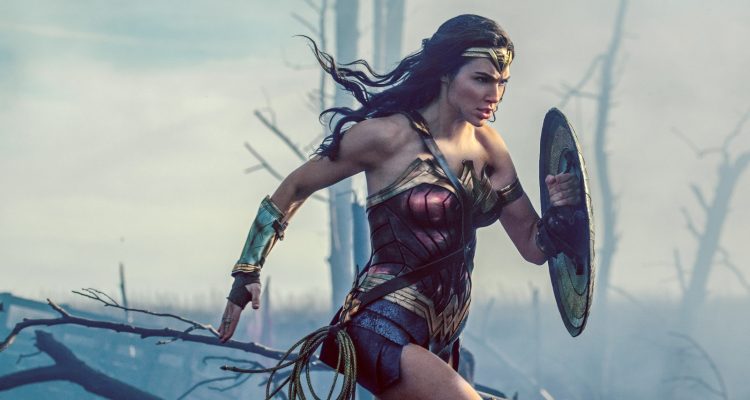For a man who hasn’t directed a movie for eight years, James Cameron has been all over the press the last few months. First, he did the rounds for the 3D re-release of “Terminator 2,” then he’s been talking up the new “Terminator” movie that he’s producing, and just today he’s been talking about the start of production for his “Avatar” sequels, which just got underway.
But J.C. wouldn’t be J.C. without some controversy, and when he doing that “T2” press earlier in the year, Cameron attracted some attention when he suggested that “Wonder Woman,” the year’s biggest hit and what many saw as a groundbreaking film in terms of its use of a female superhero front-and-center, was actually not quite the revolution it was cracked up to be, particularly when compared to, uh, his own work.
“All the self-congratulatory back-patting Hollywood’s been doing over ‘Wonder Woman’ has been so misguided,” the director said. “She’s an objectified icon, and it’s just male Hollywood doing the same old thing! I’m not saying I didn’t like the movie but, to me, it’s a step backwards. Sarah Connor was not a beauty icon. She was strong, she was troubled, she was a terrible mother, and she earned the respect of the audience through pure grit. And to me, [the benefit of characters like Sarah] is so obvious. I mean, half the audience is female!”
“Wonder Woman” director Patty Jenkins hit back, saying that Cameron’s “inability to understand what Wonder Woman is, or stands for, to women all over the world is unsurprising as, though he is a great filmmaker, he is not a woman.” But in a new interview with The Hollywood Reporter, Cameron ain’t backing down.
“I’ll stand by that,” he says of his statement earlier in the year. “I mean, [Gal Gadot] was Miss Israel, and she was wearing a kind of bustier costume that was very form-fitting. She’s absolutely drop-dead gorgeous. To me, that’s not breaking ground. They had Raquel Welch doing stuff like that in the ’60s. It was all in a context of talking about why Sarah Connor — what Linda [Hamilton] created in 1991 — was, if not ahead of its time, at least a breakthrough in its time. I don’t think it was really ahead of its time because we’re still not [giving women these types of roles].”
“Linda looked great,” he continues. “She just wasn’t treated as a sex object. There was nothing sexual about her character. It was about angst, it was about will, it was about determination. She was crazy, she was complicated. … She wasn’t there to be liked or ogled, but she was central, and the audience loved her by the end of the film. So as much as I applaud Patty directing the film and Hollywood, uh, ‘letting’ a woman direct a major action franchise, I didn’t think there was anything groundbreaking in ‘Wonder Woman.’ I thought it was a good film. Period. I was certainly shocked that [my comment] was a controversial statement. It was pretty obvious in my mind. I just think Hollywood doesn’t get it about women in commercial franchises. Drama, they’ve got that cracked, but the second they start to make a big commercial action film, they think they have to appeal to 18-year-old males or 14-year-old males, whatever it is. Look, it was probably a little bit of a simplistic remark on my part, and I’m not walking it back, but I will add a little detail to it, which is: I like the fact that, sexually, she had the upper hand with the male character, which I thought was fun.”
We suppose that maybe Cameron’s coming from a good place here, but clearly one of the reasons that “Wonder Woman” connected with so many audience members was that it gave a female audience a hero to root for in the way that, say, Superman or Spider-Man or Captain America have been. Those guys not being bad parents or whatever doesn’t make them thin characters, and Wonder Woman’s outfit doesn’t feel particularly geared to the male gaze — indeed, Jenkins’ direction makes a point of not doing that.
Now, if Cameron had attacked “Wonder Woman”’s legitimately bad CGI clusterfuck final reel, we could have gotten on board… “Wonder Woman 2” arrives in December 2019.

